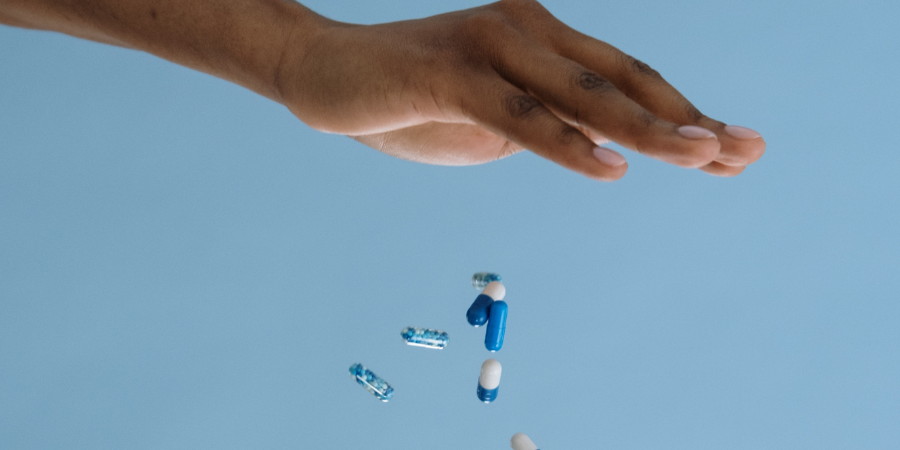
Written by:

Medically Reviewed by:
Last Updated:
August 13th, 2025
Drug Detox and Withdrawal | Timeline and Treatment
- Select
- Drug addiction
- Drug detox
- Drug rehab
When drug use turns into dependence, detox can be the first real step back to yourself. It’s the point where the cycle starts to break, where your body begins to adjust, and you no longer need to use it to feel normal.
Detox isn’t easy, and we won’t pretend it is. But at Primrose Lodge, it’s made safer, calmer and more manageable. Whether you’re dealing with one substance or many, our programme gives you the structure and support needed to get through those first difficult days and start recovery on steady ground.
What does drug detox mean?
Drug detox is the process of clearing a substance from your system while managing the symptoms that follow. These symptoms appear when the brain and body, once used to functioning with the drug, suddenly have to cope without it. That readjustment is what makes detox so hard.
Symptoms vary based on the drug in question. Some cause intense physical discomfort, while others affect energy, sleep or motivation. Also, because drug use can also be a coping mechanism, detox can feel like losing the one thing that helped you get through the day. Our job is to help you manage that shift in a way that feels supported and steady.
Types of drug detox we offer
Every drug affects the body and brain in its own way. Some bring intense physical symptoms during detox, while others leave behind mental or emotional turmoil. That’s why we don’t offer a blanket approach. Instead, we tailor each detox to the substance involved and the challenges it brings.
Amphetamine detox
Withdrawal from amphetamines can lead to fatigue, low mood and difficulty concentrating. We offer a setting that supports rest and gives your mind the space it needs to reset.
Cannabis detox
Although often seen as harmless, cannabis detox can still bring irritability, sleep disruption and cravings. We help reduce the mental fog and get you back to clarity.
Cocaine detox
Cocaine withdrawal may cause restlessness and a loss of motivation. Our programme gives you the tools and time to recover energy and find emotional balance.
Crack cocaine detox
Crack detox often hits quickly, with sharp cravings and mood changes. We respond fast, offering reassurance and a calm routine to get you through the early stages.
Ecstasy detox
Coming off ecstasy can leave you feeling emotionally depleted or flat. Our care focuses on emotional support and stability while your brain chemistry rebalances naturally.
Heroin detox
Heroin withdrawal can bring severe physical and mental distress. We manage this with close support, soothing care and a steady plan to keep symptoms from overwhelming you.
Ketamine addiction
Ketamine detox may cause confusion, emotional numbness or agitation. We help ground you through it, offering safe connection and a space where things begin to feel real again.
Meth detox
Methamphetamine withdrawal can lead to low mood and anxiety. Our environment helps restore rhythm and calm, with close support when your thoughts feel unsteady.
Steroid detox
Steroid detox may affect hormones, mood and energy. We help you through the drop in motivation and emotional swings while your system finds its natural balance again.
Not all withdrawal symptoms are physical
When people think of detox, they often imagine sickness, shivers and pain. But many drug detoxes come with psychological symptoms that are just as difficult, even if they’re harder to see.
You might feel emotionally flat or disconnected. You might find it hard to care about anything or feel like nothing brings relief. Some people experience intense anxiety, irritability or a sense of inner restlessness they can’t explain. Others feel bored, lost or empty without the drug, especially if it was tied to socialising or escaping tough emotions.
We take these symptoms seriously. You’ll never be told to ‘push through’ or ‘snap out of it’. Instead, we help you build a foundation that holds you up when the emotional discomfort feels like too much. We create a calm space where your thoughts can slow down and your emotions aren’t brushed aside.
The drug detox timeline
There’s no single timeline that applies to every drug. Some substances leave the body quickly, with symptoms showing up within hours. Others linger longer, with effects that come and go in waves. But in most cases, withdrawal moves through three general phases.
Stage one: onset (6 to 48 hours)
This is when withdrawal first begins. For drugs like cocaine or ecstasy, it might happen within a few hours. For cannabis or steroids, it could take a day or more. You might feel anxious, unsettled or emotionally foggy. Sleep can be disturbed, and thoughts may become intrusive.
Stage two: peak symptoms (2 to 7 days)
This is usually the hardest part. Physical symptoms, if present, are often at their strongest. This is usually the hardest part. Physical symptoms, if present, are often at their strongest. Cravings may become more intense. Your emotions might swing or feel dulled entirely. Some people report feeling like their minds are moving too fast. Others feel stuck or slow.
Stage three: stabilisation (after one week)
Symptoms begin to ease, but energy, sleep and mood may still feel off. Some people feel relieved here, others feel uncertain, unsure how to live without the drug they were using to get by.
What detox at Primrose Lodge feels like
We know detox can feel like a storm. That’s why everything we do is built to keep things steady. Our environment is warm and quiet, far from the chaos that often surrounds addiction.
There’s no pressure to open up straight away. There’s no expectation to be “fixed” in a few days. This is about giving you the support to let go, rest and start adjusting to life without the drug. We help you feel safe enough to do that, one step at a time.
You’ll be cared for by a team that understands what this stage really feels like. You won’t be left wondering if what you’re feeling is normal or if things will ever improve. You’ll be reminded that what you’re going through is part of the process and that you don’t have to do it alone.
What comes after detox?
Once your system has cleared the drug and things start to settle, therapy becomes the next focus. This is where deeper healing begins. At Primrose Lodge, we offer one-to-one counselling, group therapy, CBT, DBT and holistic treatments like art and yoga. These sessions help you explore why the drug took hold and what life could look like without it.
If detox is the reset, therapy is the rebuild. If you’re ready to take that step, we’re here to guide you through it.






